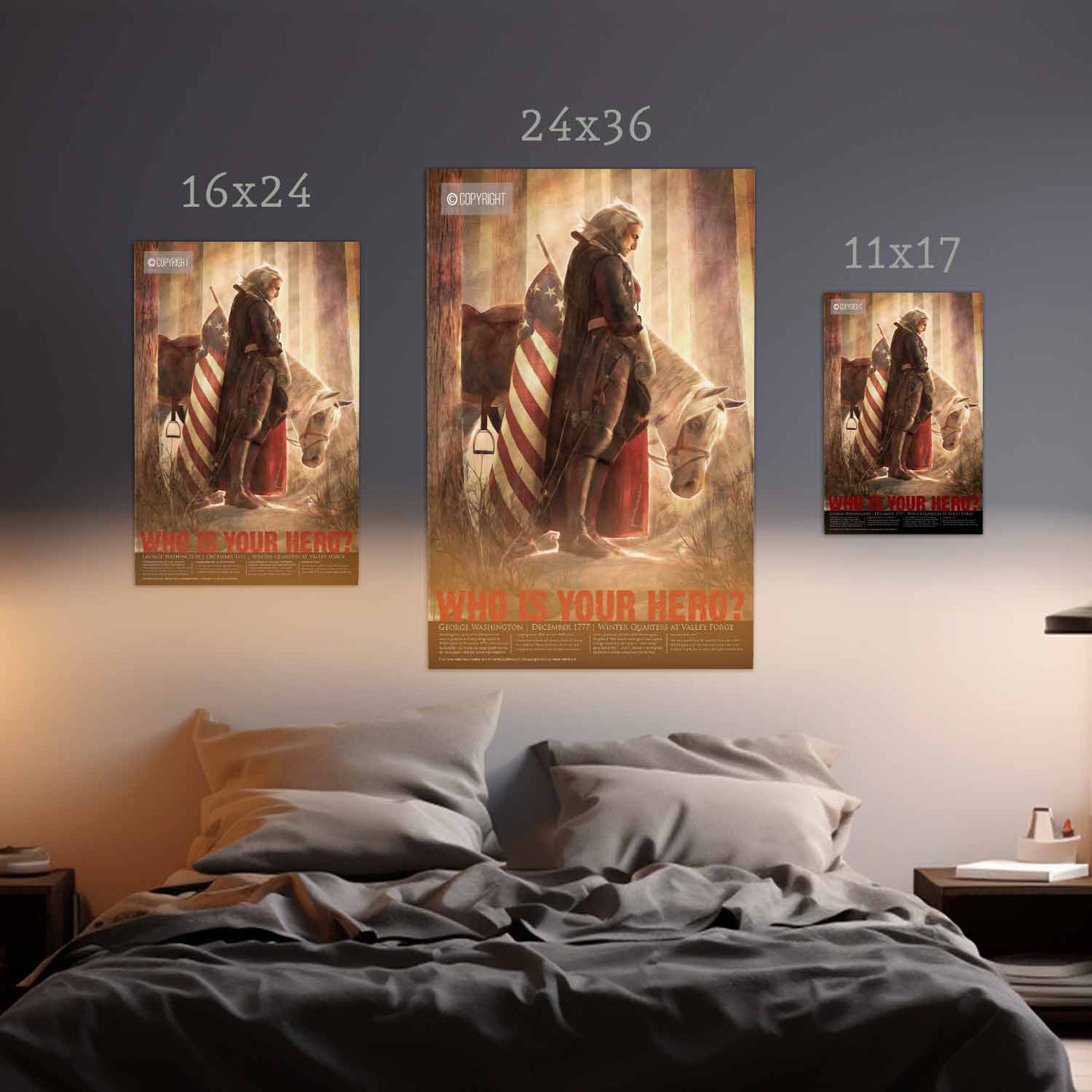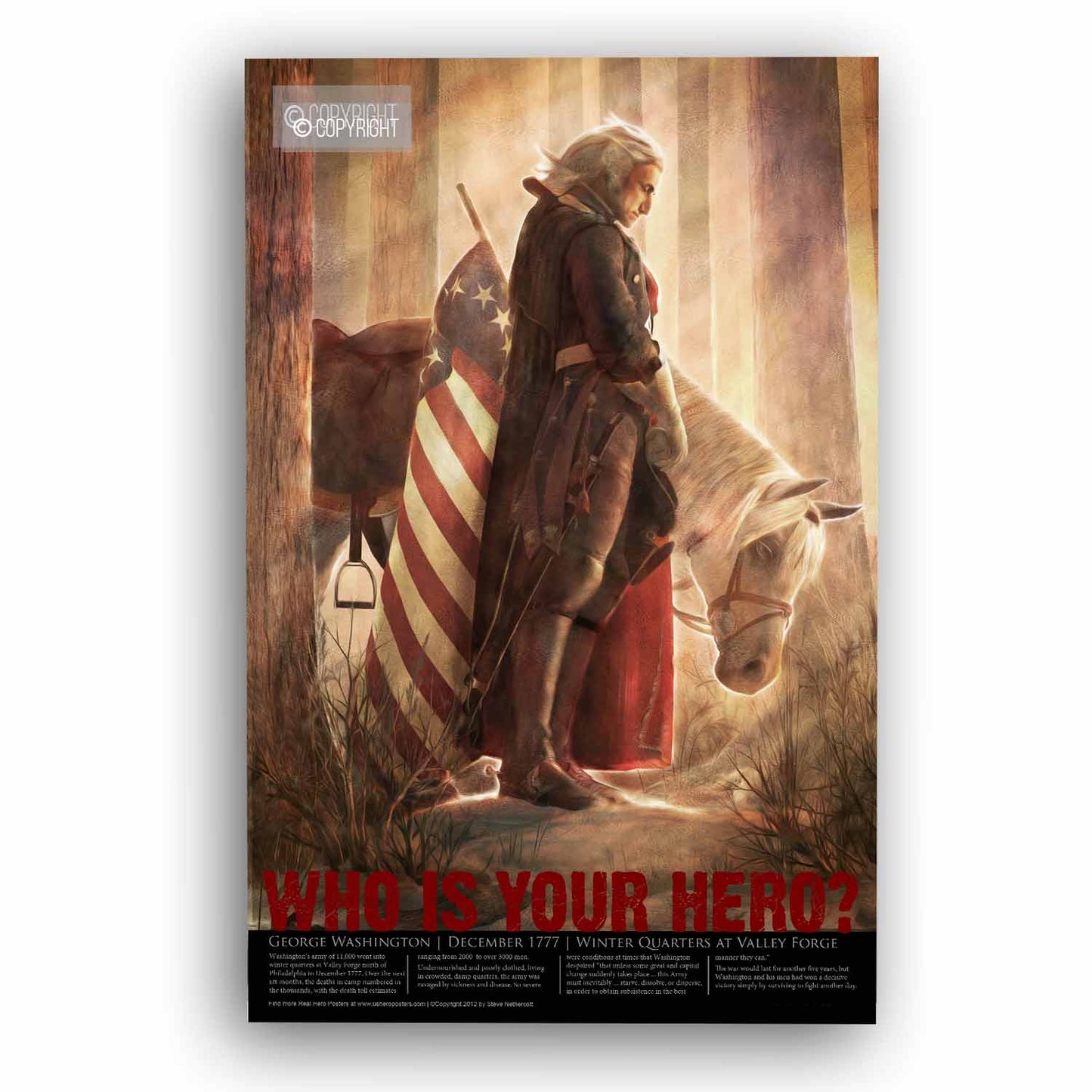Washington's Prayer | Poster
Washington's Prayer | Poster
Text On Print:
George Washington | December 1777 | Winter Quarters at Valley Forge
Washington’s army of 11,000 went into winter quarters at Valley Forge north of Philadelphia in December 1777. Over the next six months, the deaths in camp numbered in the thousands, with historians’ death toll estimates ranging from 2000 to over 3000 men.
Undernourished and poorly clothed, living in crowded, damp quarters, the army was ravaged by sickness and disease. Typhoid, jaundice, dysentery, and pneumonia were among the many diseases that killed many men that winter. Although Washington repeatedly petitioned for relief, the Continental Congress was unable to provide it, and the soldiers continued to suffer. Women, relatives of enlisted men, alleviated some of the suffering by providing valuable services such as laundry and nursing that the army desperately needed. Upgrading military efficiency, morale, and discipline were as vital to the army’s well-being as was its source of supply. The army had been handicapped in battle because unit training was administered from a variety of field manuals, making coordinated battle movements awkward and difficult. The soldiers were trained, but not uniformly. Camp Followers at Valley Forge consisted of the families, wives, children, mothers, and sisters of the soldiers.
So severe were conditions at times that Washington despaired "that unless some great and capital change suddenly takes place ... this Army must inevitably ... starve, dissolve, or disperse, in order to obtain subsistence in the best manner they can." Animals fared no better. General Henry Knox, Washington’s Chief of Artillery, wrote that hundreds of horses either starved to death or died of exhaustion. Clothing, too, was wholly inadequate. Many wounded soldiers from previous battles died from exposure. Long marches had destroyed shoes. Blankets were scarce. Tattered garments were seldom replaced.
On June 19, 1778, six months after its arrival, the army marched away from Valley Forge in pursuit of the British, who were moving toward New York. The war would last for another five years, but Washington and his men had won a decisive victory simply by surviving to fight another day.
Share
























